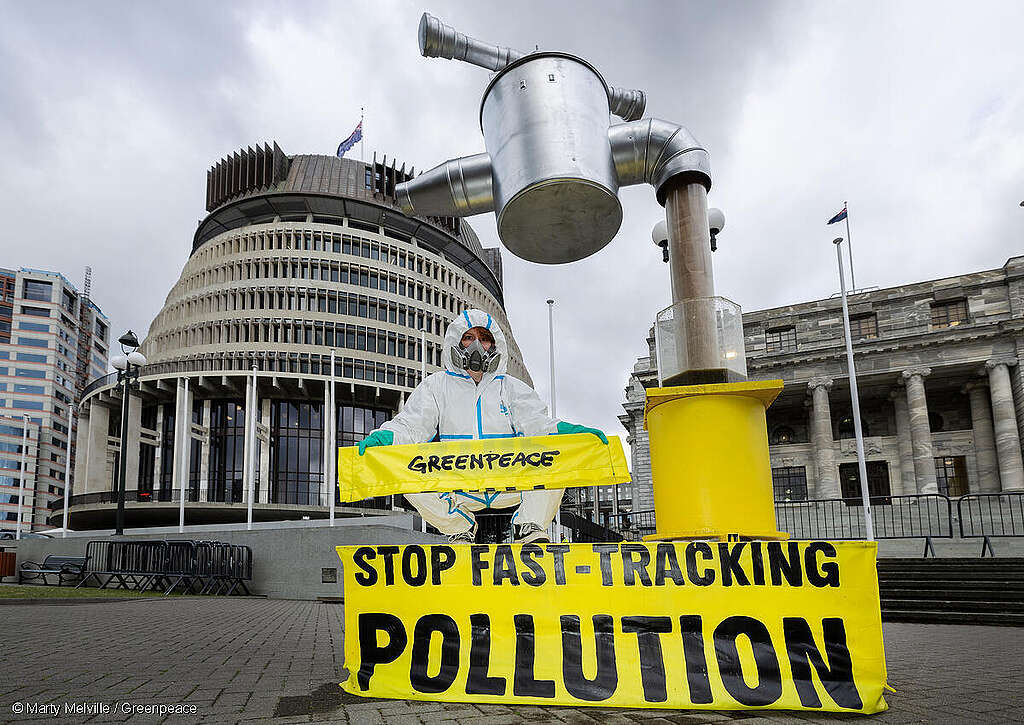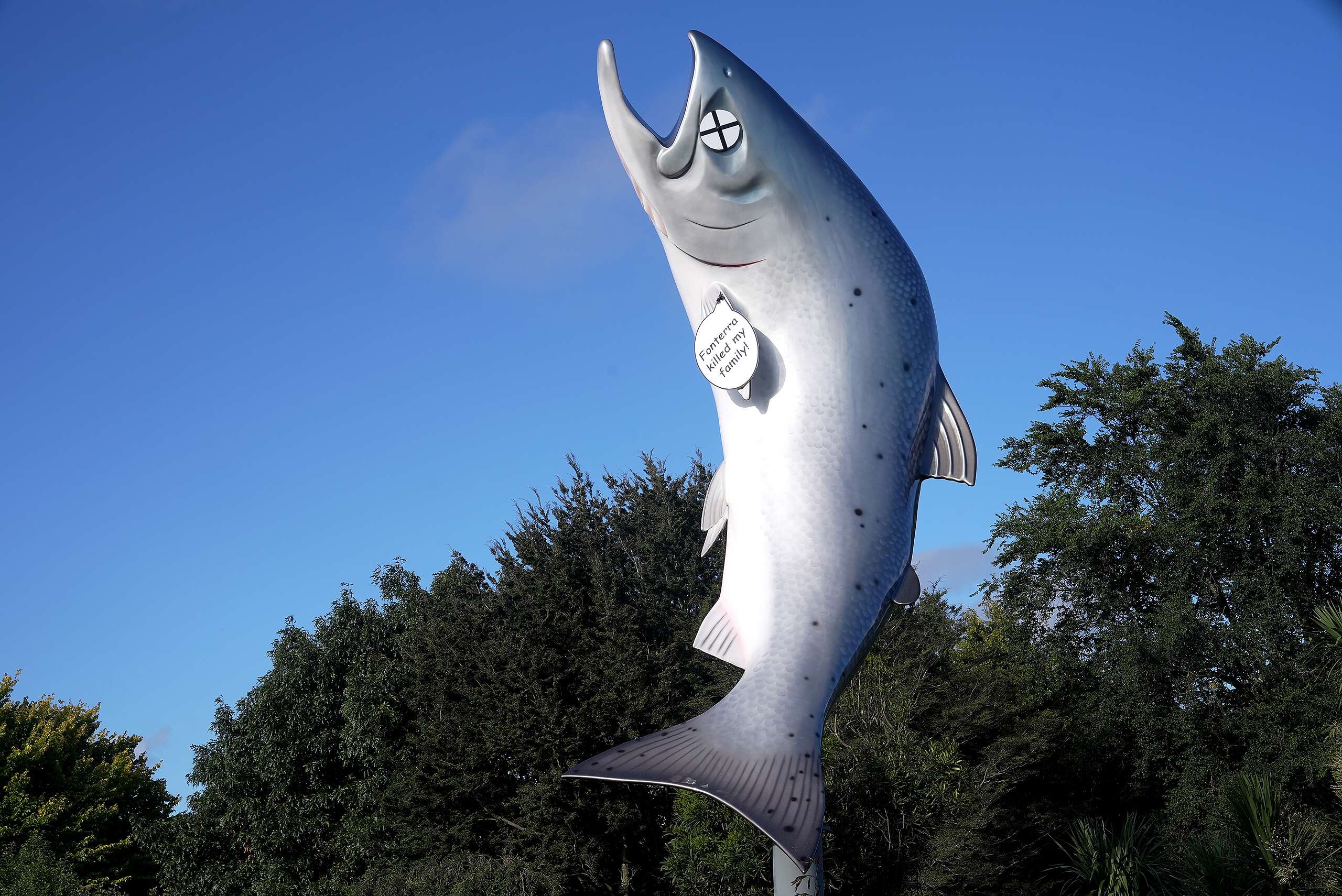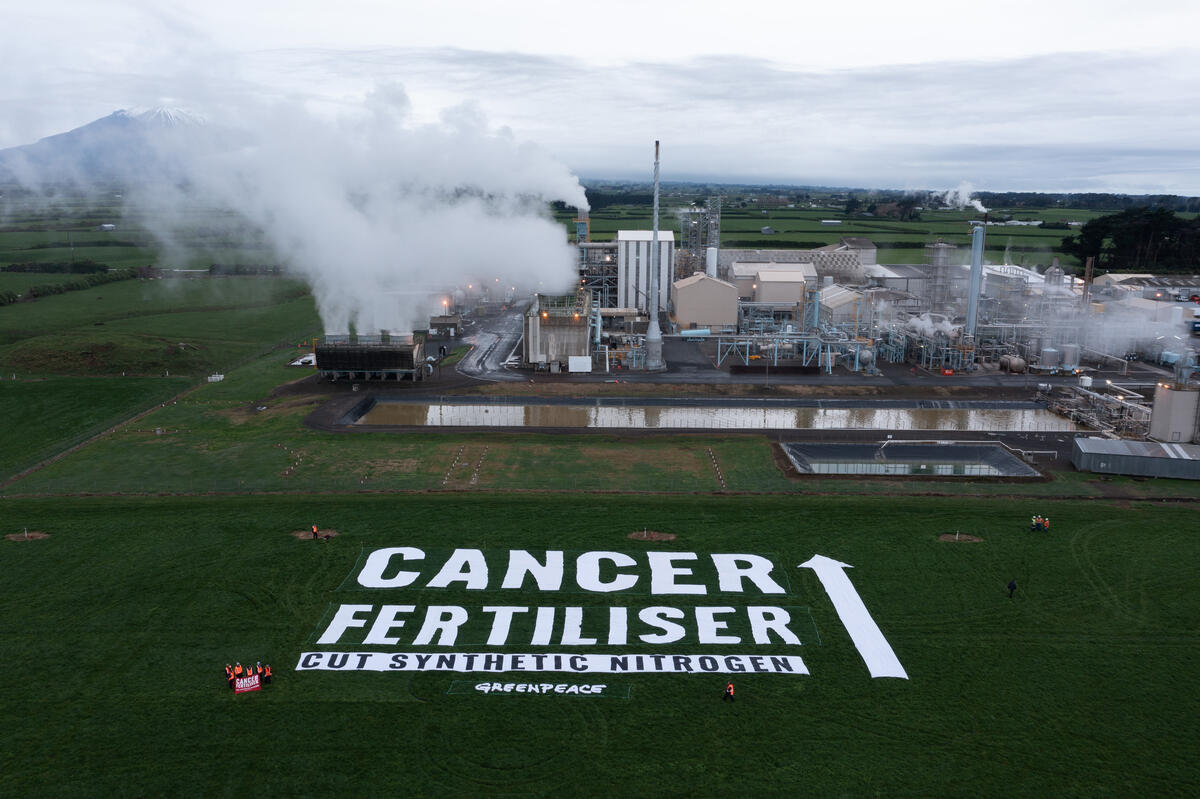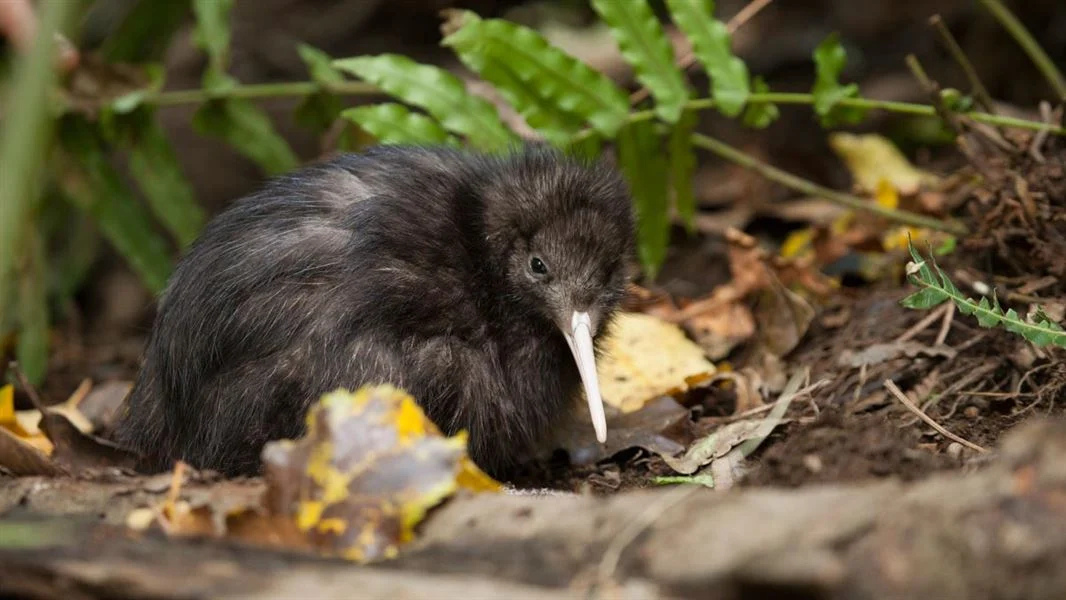The Luxon Government has made their intentions clear. They want to change freshwater regulations to make it easier for the intensive dairy sector to pollute lakes, rivers and drinking water. They’re pulling out all the stops to make this happen as quickly as possible, in what we’ve labelled their ‘freshwater pollution plan’.
The Government is proposing major changes to freshwater regulations. These changes would strip away key protections, giving big polluters more power and leaving communities and ecosystems exposed.
You can make a submisssion to stop these changes now!

Take action to protect fresh water.
Make a submissionSynthetic nitrogen fertiliser, big irrigation and intensive dairying are key drivers of the freshwater crisis. Only 2% of lakes are considered to be in good or very good health, and almost half of New Zealand’s rivers are so polluted they’re now unsafe for swimming. Two thirds of freshwater birds and three quarters of native freshwater fish are on the brink of extinction.
The measures that the Government wants to put in place through their freshwater regulation changes – like getting rid of the fertiliser cap and loosening the rules on big irrigation – will only make this situation worse.
Here are some of the worst parts of the plan, and what they mean for our communities and the lakes and rivers we care about.
Freshwater regulation cut #1: Scrapping the fertiliser cap – more nitrate, less protection
The overuse of synthetic nitrogen fertiliser in the intensive dairy sector is a major source of nitrate contamination in New Zealand’s drinking water. It also drives intensive dairying, by enabling more cows to be crammed onto the land. This leads to more pollution in rivers, lakes and drinking water.
But New Zealanders across the country stood up for safe drinking water and swimmable rivers, and together we won a cap on the use of synthetic nitrogen fertiliser.
The cap was introduced in 2020, which limited synthetic nitrogen fertiliser use to 190 kilograms per hectare. This was to prevent further degradation of lakes and rivers, and protect people’s health.
This was a turning point. The synthetic fertiliser cap is a direct regulatory control on a freshwater contaminant. It is the first input control of its kind and it works. That’s why the intensive dairy sector and the government want to get rid of it. And it’s why we must fight to save it.
Voluntary measures aren’t enough. If anything, evidence shows that the cap is working and should be strengthened, not removed.
We need more action to stop nitrate pollution, not less. The fertiliser cap should stay in place, and over time, it should shrink to zero. We have to fight to keep this cap in place so we can push to strengthen it in the future.
Freshwater regulation cut #2: Irrigation deregulation
The Government is also proposing new building standards that would make it easier to construct water storage for irrigation schemes, which damage the natural landscape and enable dairy expansion.
This is irrigation deregulation, and it’s a deliberate move to loosen the rules for big irrigation schemes.
The water from big irrigation schemes is used to convert more farmland to intensive dairying. Along with synthetic nitrogen fertiliser, it props up corporate dairy by allowing more cows to be crammed onto the land.
The intensive dairy industry has already blown past ecological limits. There are too many cows in New Zealand. And the country’s lakes, rivers and drinking water are in crisis as a result. We need less irrigation, not more.
Freshwater regulation cut #3: Putting profits before people
A core principle of current freshwater regulations is that the health of freshwater ecosystems and access to safe drinking water are prioritised ahead of commercial interests.
This is called the hierarchy of obligations, which is part of Te Mana o Te Wai. Corporate polluters hate this because it makes it harder for them to pollute the water we all rely on.
Now, the Government wants to change that, and they’re proposing to remove the single objective that prioritises water health. Instead, they want to replace it with multiple new objectives that favour commercial uses. They’ve also proposed redefining or removing Te Mana o Te Wai in order to scrap the hierarchy of obligations altogether.
They also want to make it harder for regional councils to introduce stronger freshwater protections if it might impact industry profits.
Their goals are clear – they want to get rid of any rules that prioritise healthy lakes and rivers or safe drinking water, because they get in the way of polluting industries.
This is a blatant attempt to prioritise corporate interests over public health.
The result of these freshwater regulation changes would prioritise corporate profits over public health
When you consider all the changes that have been proposed through these freshwater regulation changes, it’s clear that Luxon and his Government seek to prioritise corporate profits ahead of communities, their access to safe drinking water, and the health of the lakes and rivers they care about.
And this is happening amid a growing drinking water crisis in New Zealand.
In 2024 seven registered water supplies exceeded levels of nitrate associated with an increased risk of preterm birth. Not only this, but between April 2019 and March 2024, 12.4% of groundwater monitoring sites exceeded the maximum allowable value for nitrate.
The current maximum allowable value of 11.3 mg/L for nitrate was set in the 1950s to avoid blue baby syndrome. This standard has been criticised by health scientists for being woefully out of date, because it doesn’t take into account newer health science that finds health risks like preterm birth and cancer at much lower levels.
This is why we should be taking a precautionary approach, to prevent harm to human health before it’s occurred. Our history with asbestos shows how devastating the consequences can be when we don’t take a precautionary approach.
Have your say on fresh water protection
Everyone, no matter where they live, should be able drink the water from their kitchen tap without worrying about getting sick. And the Government has to take action now, which is why it’s so important to oppose their freshwater regulation changes, and demand stronger action to protect freshwater.
The proposals are open for public consultation until 27 July 2025. That means we have a chance to speak up and demand better. Because everyone deserves access to safe drinking water.
Here’s how you can make a submission
- Use our handy submission generator here. Just follow the instructions, and you’ll be done in no time.
- Head to the government’s portal and follow the instructions to make a submission
Learn more about the proposed freshwater regulation changes
The proposals are amendments to the National Policy Statement for Freshwater Management and the National Environmental Standards for Freshwater.
The full discussion document for consultation can be found here.



